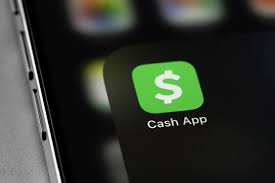Visa Proposes $100 Million Deal to Replace Mastercard as Apple Card Partner

Visa Bids $100 Million to Replace Mastercard on Apple Card
In a bold and strategic move within the competitive arena of consumer finance, Visa has reportedly placed a $100 million offer to replace Mastercard as the network provider for the Apple Card. This significant bid highlights Visa's ambition to become a central player in Apple’s expanding financial ecosystem.
The Apple Card Landscape
Since its introduction in 2019, the Apple Card has become a vital component of Apple’s Wallet app and Apple Pay system. The card has attracted more than 12 million users and boasts a loan book surpassing $20 billion. With Apple’s recent decision to part ways with Goldman Sachs, the former partner, a new race has begun among card networks and banks to secure a role in this lucrative financial platform.
Visa’s Aggressive Push
Visa’s offer, initially reported by The Wall Street Journal, is a rare upfront bid in the realm of card partnerships. It underscores not only the high stakes but also the urgency and potential rewards of becoming the network provider for the Apple Card. This move reflects Visa's commitment to positioning itself as a leader in embedded finance, a sector where integration into consumer technology ecosystems is increasingly valuable.
Competitors in the Fray
Goldman Sachs, which previously handled both the card issuance and partnership through Mastercard, announced its exit from consumer finance in 2023. This decision was driven by ongoing financial losses, regulatory challenges, and disappointing returns. As a result, major financial players have entered the fray. American Express has reportedly engaged Apple with a proposal to manage both issuing and network roles. Meanwhile, leading banks like JPMorgan Chase, Synchrony Financial, and Barclays are eyeing the issuer position vacated by Goldman Sachs.
Apple’s Strategic Considerations
For Apple, the Apple Card is more than just a financial product—it is a crucial element of its service strategy, which is integral to the company’s future growth. The card offers no fees, daily cashback incentives, and is seamlessly integrated into the Apple ecosystem, all designed to enhance customer loyalty and encourage the use of Apple Pay. However, Goldman Sachs’ departure marks a significant transition.
Challenges and Opportunities
Goldman’s involvement in consumer finance, including its partnership with Apple, led to substantial financial losses and scrutiny from U.S. regulators, resulting in an $89 million fine tied to consumer complaints. Moving forward, Apple's future partners must not only provide technical reliability and competitive terms but also align with Apple’s brand values and digital-first user experience—a challenging but enticing prospect for companies like Visa and American Express.
The Broader Implications
This bidding war highlights the larger trend of convergence between technology and finance, where control over customer experience and data is as valuable as transaction fees. As Apple reshapes its financial partnerships, the decisions made will have enduring impacts on the evolution of payments, loyalty programs, and digital wallets in the coming years.
In conclusion, Visa’s $100 million bid to replace Mastercard as the network provider for the Apple Card is a strategic maneuver with significant implications for the future of embedded finance. As Apple navigates this pivotal transition, the outcome will influence how consumer finance and technology continue to converge and evolve.










































